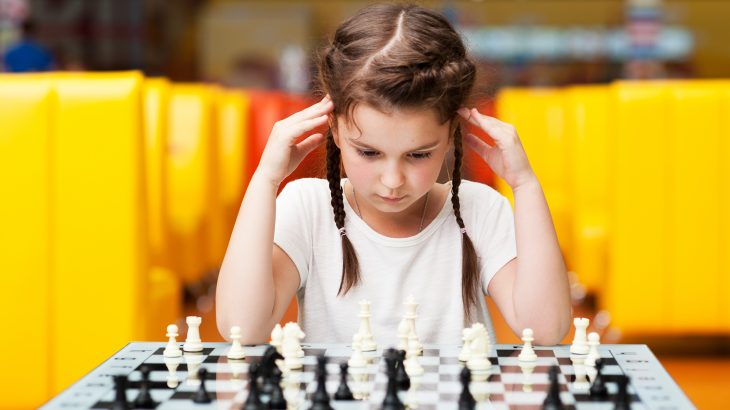Chess Improves Attention and Focus
One way to improve attention and focus is to teach chess; research shows that learning chess raises testable IQ by an average of 15 points! It helps the student gain control of his or her own attention. Chess increases cognitive skills such as logic, working memory, problem-solving, and visual processing speed.
Teach One Piece at a Time
When teaching chess to children, start with just the pawns and queens. The object of Pawns & Queens is to get one pawn all the way across the board. Play this simple game until the child knows how pawns and queens move. Then add one piece; the knight is usually next. The object of the game is still to get a pawn across the board.
After the knight is mastered, add the bishop, then the rook. The king is added last, and only at that point do you introduce check and checkmate. By teaching in stages, the child is not overwhelmed or frustrated. For more detailed teaching tips, refer to Chess is Child’s Play: Teaching Techniques That Work.
Use a Child-friendly Board
The chess pieces used for teaching the game need to be large enough for little hands to manage without knocking other pieces over. The board and the pieces should be washable and unbreakable. Too often, this translates into cheap plastic and ugly, which doesn’t help the child love the game. Thankfully there are some nice sets available that meet all the needs for teaching chess. I’ve linked one below which I like to use because the pieces are heavily weighted so they are stable, and the board rolls up for storage between games.
Two Sets are Better than One
I like to have two chess sets available — one which is playroom indestructible and which the child can use any time, including invented games he makes up himself. The other set is intricately carved, made of beautiful materials, and appears to the child to be nearly magical because of its beauty. I have one that boasts dragons and castles. This set is taken down and used when the child plays with an adult. Using it can be a special reward for learning a new piece or making a great move.
Life-Long Skill
Teaching chess not only improves cognitive skills, thus building a solid foundation for reading and math, but it provides a life-long skill that can be enjoyed anywhere in the world. For children who struggle with reading or math, learning to play chess reassures them of their ability to learn complex material, and signals teachers or other students that the child may be capable of more than the teacher assumed.
By Yvonna Graham, M.Ed.
www.dyslexiakit.net
@GrahamYvonna
